Why is Israel planning a ground invasion of Rafah? Why is this concerning?
Israel has announced its military will soon launch a ground offensive in Rafah in Gaza. The town currently houses more than one million Palestinians, who have nowhere else to go. The plan has come under fire from countries, with the US and Egypt saying it will have ‘disastrous consequences’

People walk through the rubble of a building heavily damaged by Israeli bombardment, in Rafah in the southern Gaza Strip, amid the ongoing conflict between Israel and the Palestinian militant group Hamas. AFP
It’s Day 128 of the Israel-Hamas war. The fighting continues, showing no signs of slowing down. As the war rages on, Israel has turned its eyes towards Rafah, calling it the “last bastion” of Hamas.
In fact, Israel has already begun airstrikes in the region, with Prime Minister Benjamin Netanyahu calling for a ground invasion. “We’re going to do it, we’re going to get the remaining Hamas terrorist battalions in Rafah, which is the last bastion, but we’re going to do it,” he was quoted as telling ABC News.
Israel’s neighbours and key mediators have warned of disaster and repercussions if its military launches a ground invasion in Gaza’s southern city of Rafah.
Related Articles
But what is Rafah? What are the details around this announced Israeli “operation”? And what could be the possible repercussions of this move?
What is Rafah?
Rafah lies in the middle of the border between the Gaza Strip and Egypt. At 64 square kilometre, it is the largest city in Gaza.
An area with a population of 300,000 people, it is today home to more than 1.4 million people — estimated by the United Nations — as more and more people have been herded into it by Israeli forces who keep promising safety “further south”.

People living in Rafah have been forced to live in dense clusters in small spaces. Conditions are dire, with severe shortages. The UN has called Rafah a “pressure cooker of despair” as living conditions worsen in the town. “Most are living in makeshift structures, tents or out in the open,” OCHA spokesman Jens Laerke had said in early February.
UN officials have said that the infrastructure in Rafah will not cope with a displaced population. UN schools serving as shelters in Rafah are already several times over capacity. There is little food, clean water or electricity.
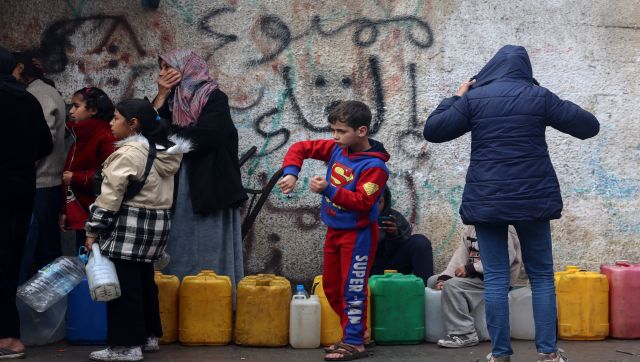
Why does Israel want to invade Rafah now?
On 9 February, a message from the office of Israeli prime minister Benjamin Netanyahu stated: “It is impossible to achieve the war objective of eliminating Hamas and leaving four Hamas battalions in Rafah. On the other hand, it is clear that a massive operation in Rafah requires the evacuation of the civilian population from the combat zones. That is why the prime minister directed the IDF and the defence establishment to bring to the Cabinet a dual plan for both the evacuation of the population and the disbanding of the battalions.”
What this means is that Israel plans to carry out a ground operation in the town, which has become the last refuge for the people in the Gaza Strip.
However, it remains unclear where the large number of people living in this area will be moved. And when asked about it, Netanyahu said that they were working out a detailed plan. “We’re not cavalier about this. This is part of our war effort to get civilians out of harm’s way. It’s part of Hamas’s effort to keep them in harm’s way.”

Why is this plan worrying?
Netanyahu’s plan of launching a ground invasion — even though there’s no timeline or confirmation of when it can be — has set off panic.
Many are worried that the Israel Defense Forces (IDF) will issue a warning about two hours before a ground invasion into Rafah. This will give the residents a time window of a few hours that day to evacuate the city. As Haaretz reports, “Imagine this convoy of refugees and the mass panic of people fleeing the area. Think of the elders, the sick, the disabled and the wounded who will be “lucky” to be transported in donkey carts or makeshift wheelbarrows and in cars that run on cooking oil. While the rest march on trying to find safety.”
The UN has also stated that fighting in Rafah would exacerbate “what is already a humanitarian nightmare.”
Moreover, some also believe that this military movement could lead to more Israeli settlements in the Gaza Strip.
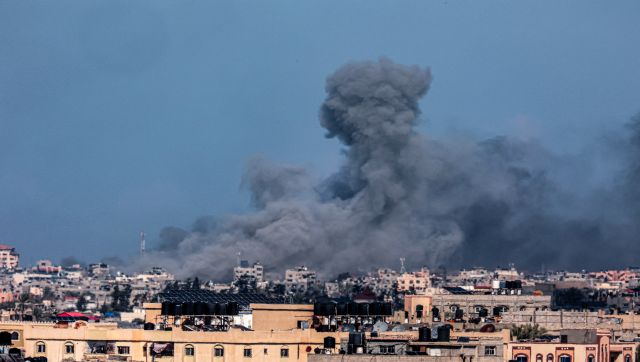
How have other countries reacted?
However, Israel’s decision to invade Rafah hasn’t been received well by its allies and other countries.
United States president Joe Biden in a phone call to Israeli prime minister Benjamin Netanyahu “reaffirmed” his stance the IDF should not proceed with the military operation in the southern Gaza city of Rafah “without a credible and executable plan” to ensure the safety of civilians.
National Security Council spokesperson John Kirby warned the US would not support Israel’s assault on the region, warning that a military operation would be a “disaster” for civilians there. In an interview with NPR, US Ambassador to the United Nations Linda Thomas-Greenfield said that a military operation in the city “cannot proceed” under current conditions.
These concerns were expressed by others too. The EU’s top diplomat Josep Borrell said in a post on X that an offensive on Rafah would have “catastrophic consequences, worsening the already dire humanitarian situation and the unbearable civilian toll.”
Japan too, on Monday (12 February), said it was “deeply concerned” about Israeli military operations in Rafah. In a statement, Ministry of Foreign Affairs press secretary Kobayashi Maki stressed the fact that more than one million people are sheltering in Rafah, and that the city is crucial for the delivery of humanitarian aid.
Egypt has strongly rejected Israel’s plans in Rafah, warning of the “grave consequences” of such a military operation. Egyptian foreign minister Sameh Shoukry asserted that Israel aims to eventually force the Palestinians out of their land. Egypt has warned that any movement of Palestinians into Egypt would threaten the four-decade-old peace treaty between Israel and Egypt.
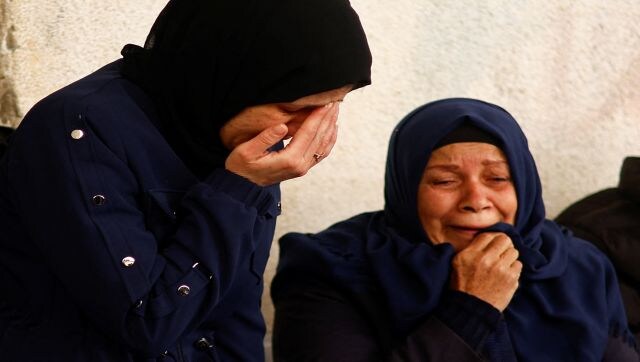
There are added concerns that a ground offensive in Rafah would torpedo the hostage talks, with a Hamas leader telling AFP, “Any attack by the occupation army on the city of Rafah would torpedo the exchange negotiations.”
But despite the criticism and condemnation, Netanyahu seems to be going forward with his plan. He was quoted as telling ABC News in an interview, “Those who say that under no circumstances should we enter Rafah are basically saying lose the war.”
Avi Dichter, a minister from Netanyahu’s conservative Likud party, was also quoted as telling Israel’s public broadcaster, Kan: “It will begin and it will end, just like in other places.”
An uncertain future for Rafah?
And while a ground offensive hasn’t begun yet, Israel’s air strikes in the region have already killed 60 people, as per Palestine Red Crescent Society. The IDF confirmed on Monday that they conducted “a series of strikes” on targets in the area of Shaboura, a district of Rafah, saying in a statement that “the strikes have concluded.”
The Israeli military also rescued two hostages during a special operation conducted overnight in Rafah. The hostages are 60-year-old Fernando Simon Marman and 70-year-old Louis Har, who were both taken 128 days ago during Hamas’ 7 October attack on Israel.
The two, who were kidnapped from the Nir Yitzhak kibbutz, are in good medical condition and have been transferred for Sheba Medical Center at Tel HaShomer.
Now it’s a matter of time when Israel will invade Rafah. As Yaakov Amidror, a former general and national security adviser, told the New York Times, “It is not imminent. But it will have to be done.”
With inputs from agencies
Join our Whatsapp channel to get the latest global news updates
also read
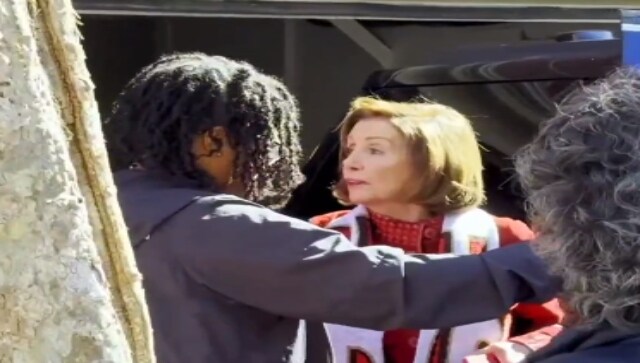
'Go back to China': Nancy Pelosi counters pro-Palestinian protesters asking for ceasefire in Hamas conflict
Pelosi found herself surrounded by protesters as she tried to enter a parked vehicle to depart. They attempted to elicit a response from her, asserting that other members of the Democratic Party were also advocating for a ceasefire. Pelosi then exclaimed, "Go back to China"
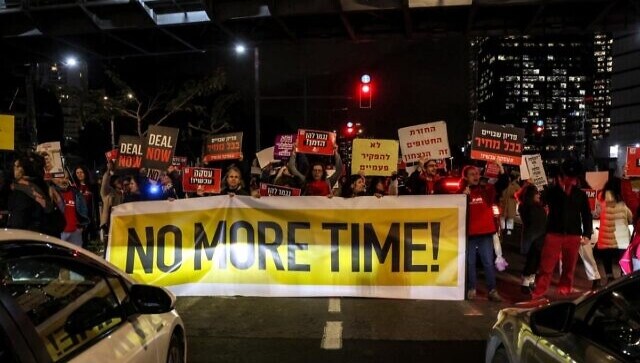
‘Rushed and not true’: Hamas says Qatar jumped the gun on truce, ceasefire proposal still being studied
After Qatar’s foreign ministry spokesperson on Thursday claimed that Hamas has given "initial positive confirmation" to a proposal for the cessation of fighting in Gaza and the release of hostages, the Palestinian terror group swiftly denied doing so and said that the proposal is still being studied
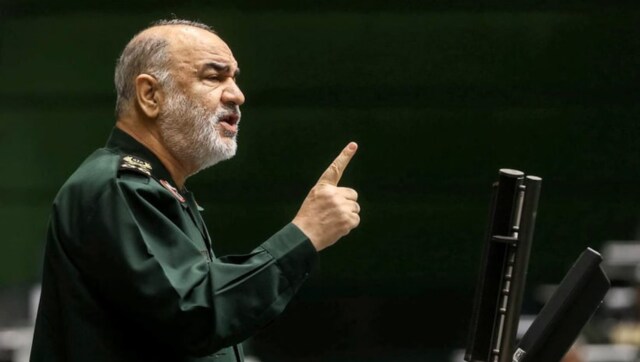
Iran's revolutionary guards commander says he is 'not afraid' of war with US
Salami conveyed, "We do not leave any threat unanswered, and we do not seek war, but we are not afraid of it. This is the well-known truth." The IRGC commander's words reflect a stance of preparedness and resilience amid escalating tensions


